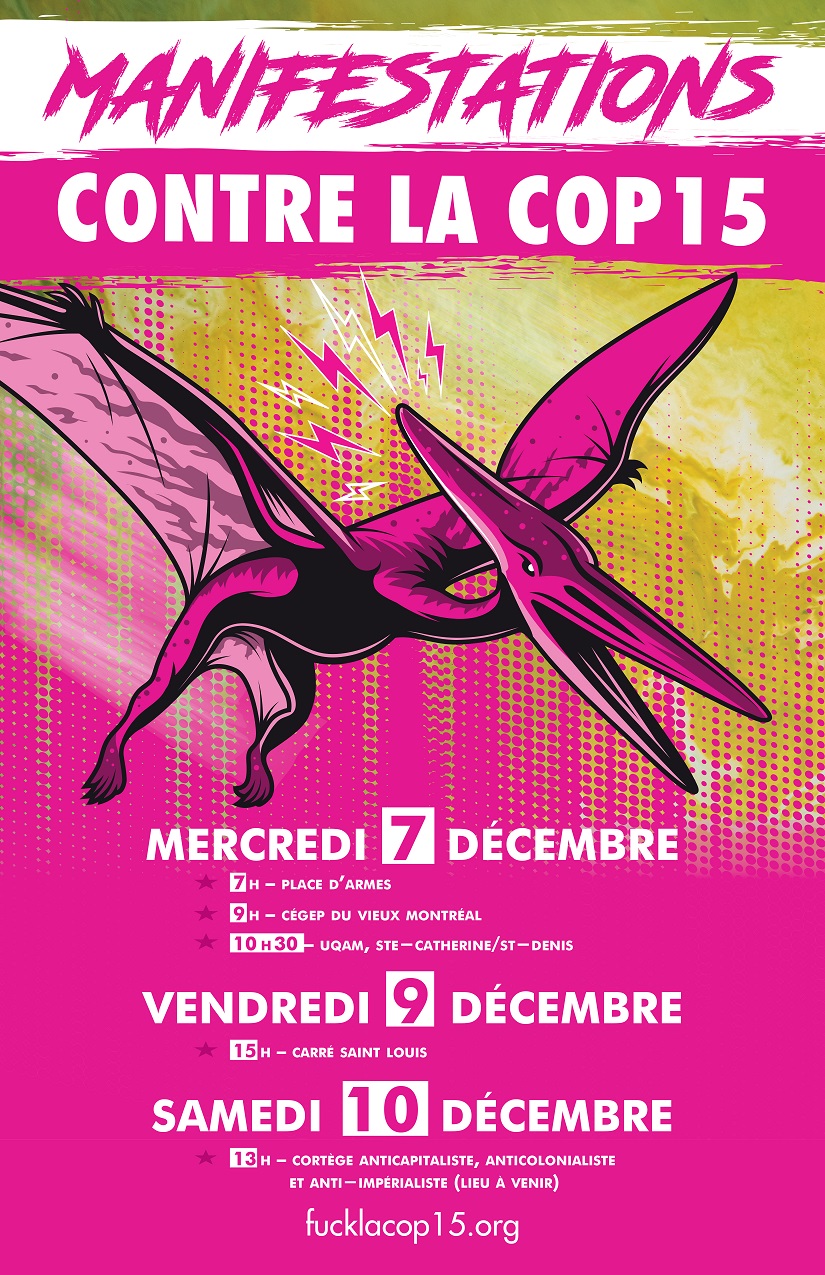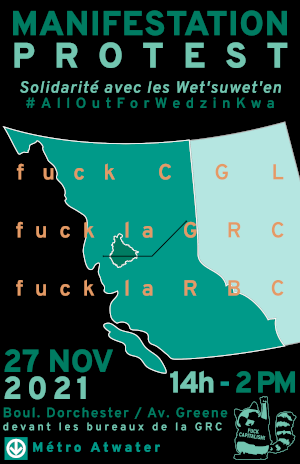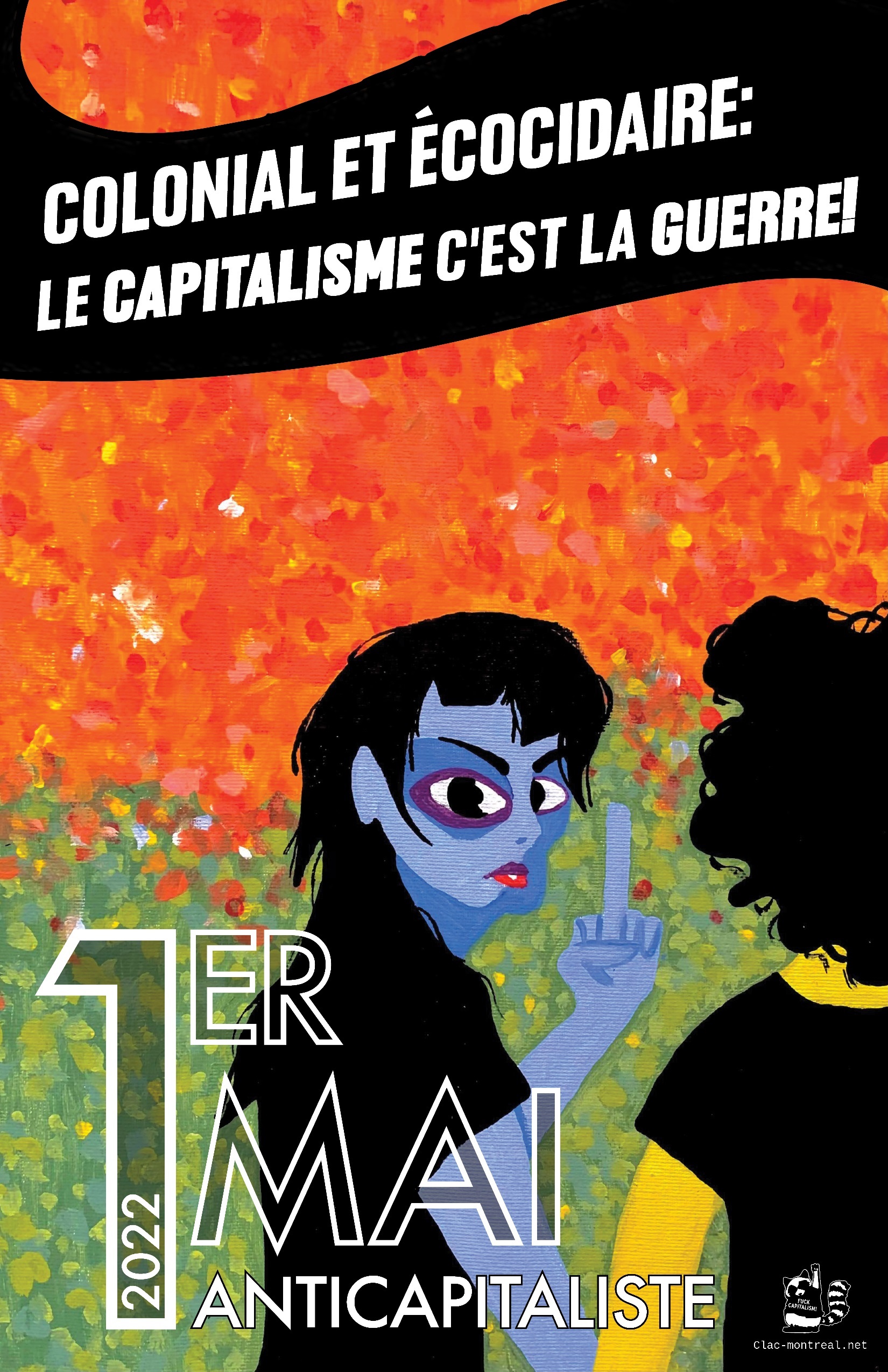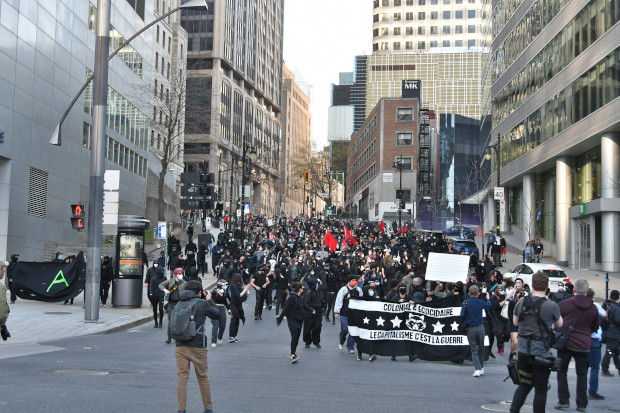Ecological Struggles / Luttes écologistes
Ciné-raton: Les patrons ont toujours tort!
Ciné-raton: Les patrons ont toujours tort!
Event Projections
Manifestation de la Rage Climatique
Manifestation de la Rage Climatique

Retour sur le projet de barrage hydro-électrique de la Romaine
Retour sur le projet de barrage hydro-électrique de la Romaine
«Énergie propre, renouvelable, fiable et abondante» sont les premiers descriptifs du projet sur la rivière Romaine que publie Hydro-Québec. Sommes-nous étonnés? Non, car à première vue, cette société d’État québécoise présente fièrement ce projet sur leur site, dans une vidéo glorieuse, défilant quelques faits sur le barrage. Elle exprime entre autres que la réalisation du projet se fait en collaboration avec les collectivités locales, que la construction crée plus de 1000 emplois dont 45% des travailleurs sont locaux et que l’empreinte environnementale est réduite.
Journal Article Coup de hache! (2022)
Manifestations contre la cop15!
Manifestations contre la cop15!

À l'assaut du palais
Manifestation mercredi 7 décembre au matin! 3 départs:
Solidarity Protest with the Wet'suwet'en #AllOutForWedzinKwa
Solidarity Protest with the Wet'suwet'en #AllOutForWedzinKwa

On November 27th, at 2PM, at the corner of Dorchester/Greene (Atwater metro), the Convergence des luttes anticapitalistes (CLAC) is calling for a demonstration in solidarity with the Wet'suwet'en people of British Columbia, who are fighting the canadian colonial state.
Demonstration in Solidarity wit the Wet'suwet'en: The Demonstrators Fool the Police
Demonstration in Solidarity wit the Wet'suwet'en: The Demonstrators Fool the Police

Anticapitalist Mayday '22: Colonial and Ecocidal, Capitalism is war!
Anticapitalist Mayday '22: Colonial and Ecocidal, Capitalism is war!

Event Manifestations
Dernier rappel 1er mai anticapitaliste 2022, ce dimanche, 17h à la Place du "Canada"
Dernier rappel 1er mai anticapitaliste 2022, ce dimanche, 17h à la Place du "Canada"
 Toutes les dernières infos pour la manif ! Les contingents, les autres événements le premier mai, les endossements et plus encore !
Toutes les dernières infos pour la manif ! Les contingents, les autres événements le premier mai, les endossements et plus encore !
Colonialism and Extractivism in so-called Canada
Colonialism and Extractivism in so-called Canada
Canada is recognized as one of the nation-state with the worst per capita greenhouse gas emissions on record. This is an unfortunate distinction since it is the main index used to document the human impact on climate change. While attempts are made to present the fight against climate change as a responsibility shared equally by everyone, the vast majority of greenhouse gas emissions are the result of a handful of multinational corporations whose profits are concentrated in the hands of a very small number of individuals.
Journal Article Coup de hache! (2022)
COLONIAL EXTRACTIVISM AND INDIGENOUS RESISTANCE
COLONIAL EXTRACTIVISM AND INDIGENOUS RESISTANCE
The spring of 2020 saw one of the largest Indigenous mobilizations since the Kanehsatà:ke resistance in 1990. The Wet’suwet’en nation’s opposition to the Coastal GasLink project currently being built on their territory has inspired many other communities, both Indigenous and non- Indigenous, to take direct action across Canada, thereby blocking the national rail system, the backbone of Canadian colonial capitalism.
THE WET’SUWET’EN STRUGGLE FOR SELF-DETERMINATION
THE WET’SUWET’EN STRUGGLE FOR SELF-DETERMINATION
The struggle for self-determination of the Wetsu’wet’en people is not a new one. Since the late 1990s, the hereditary chiefs of the Wet’suwet’en and Gitxsan peoples have been waging a legal and political battle for recognition of their territorial rights. In 1997, these two peoples obtained recognition from the colonial legal system that their territory had never been ceded, and that their hereditary system of governance had never been extinguished.
WHO WILL BENEFIT FROM COASTAL GASLINK?
WHO WILL BENEFIT FROM COASTAL GASLINK?
The royal Bank of Canada is at the head of a group of 27 banks who lend the 6.8 billions that are needed for the construction of Coastal Gaslink.. In Canada, the banks taking part in the agreement are ATB Financial, Bank of Montreal, Scotia Bank, CIBC, the Canadian Western Bank, Export Developpement Canada, the National bank and the Toronto Dominion. In short, the whole banking sector is supporting pipelines.
MYTHS AND REALITIES ABOUT INDIGENOUS AND ENVIRONMENTAL STRUGGLES
MYTHS AND REALITIES ABOUT INDIGENOUS AND ENVIRONMENTAL STRUGGLES
People who oppose the Wet’suwet’s struggle often bring back the same opinions, which do not always reflect reality. The purpose of this article is to provide a rationale for addressing these opinions.



